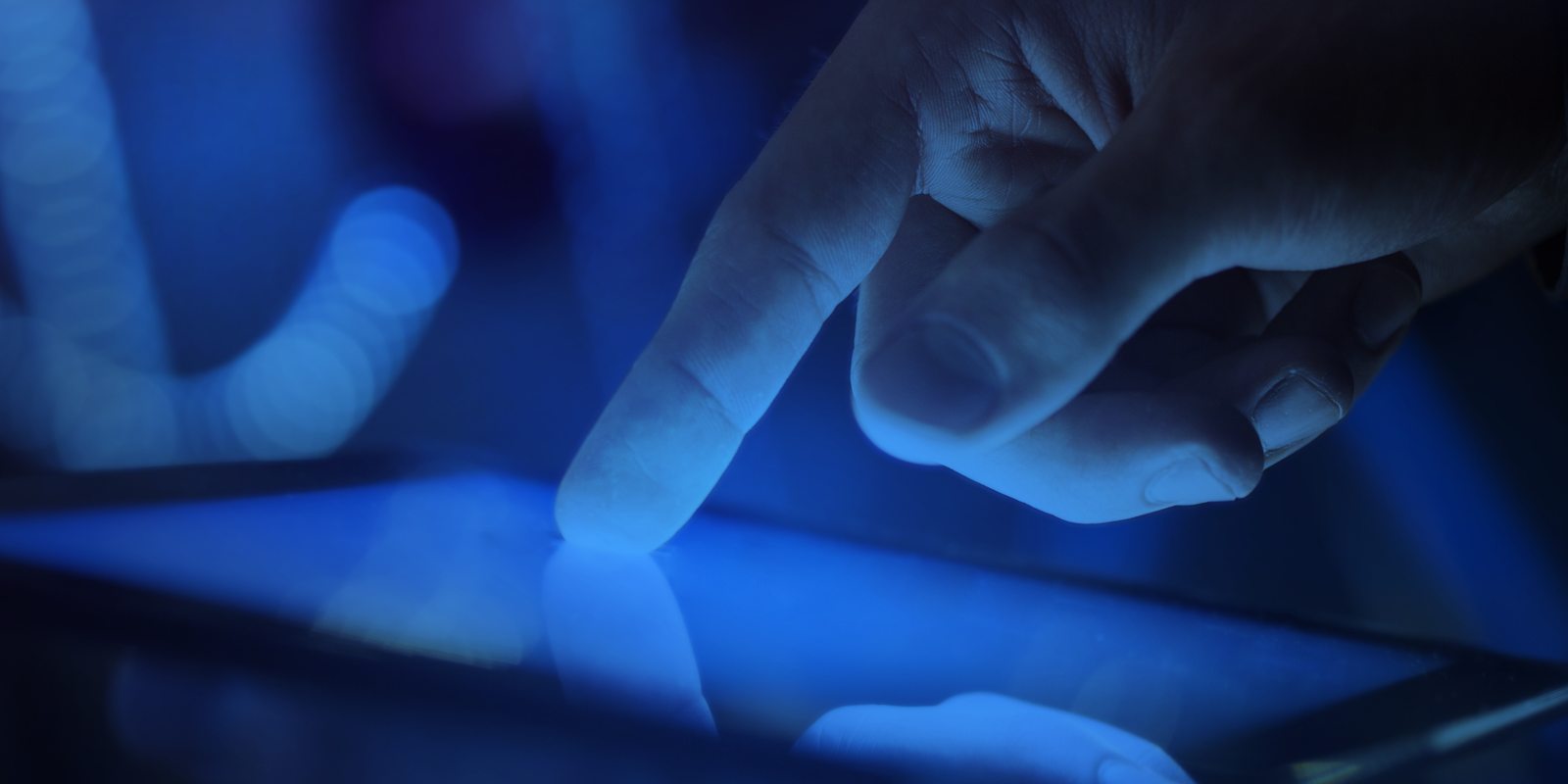Blue Light: Hero or Villain?
Blue Light Intro
Blue light seems to be the hot topic these day as something that causes problems and should be avoided, But, is it always problematic and are there times in fact when blue light can actually be helpful? Let’s have a look at the pros and cons of this vibrant light, as well as, when and how it is essential for a good night’s sleep.
Blue Light: Pros & Cons
All white light, whether natural or artificial, contains a spectrum of colors. One of those colors happens to be blue. Before the creation of artificial light in the 1870’s, blue light during the day from the sun or daylight was essential to notify our master clock that a new day had started. And, that information laid the foundation for the proper release of the sleep/wake hormones including melatonin and cortisol.
This of course is still essential to this day, but things have changed in our everyday lifestyles compared to the mid-1800s. People back then got outside far, far more often than the average person does today. Many of us in fact are inside a huge percentage of the day and get outside very little. Why does this matter?
When inside, we simply can’t get the healthy and necessary exposure to natural, outdoor blue light that is a sleep compass for our brains. When we don’t get outside enough and spend much of our time inside, things get complicated. The first concern is that ambient room lighting does not provide information to your master clock that a new day started. Secondly, being seated in front of a computer screen and the blue light emanating from it for hours may cause macular degeneration.
What about blue light film on everyday eyewear?
Recently, I went to have an eyeglass prescription filled. While at LensCrafters, the sales gal inquired if I wanted a blue light film added to my new eyeglass lenses. She explained that the film would protect my eyes from the damaging impact of blue light streaming from monitors.
I told her, ‘No”, and explained that cutting down on blue light all day long interferes in important supportive sleep messages your brain should receive. Her response. Absolutely nada. She remained mute and moved our conversation along. Bottom line: Do you really want to cut down on blue light always? Actually, no you don’t.
What to do instead?
I wholeheartedly recommend the following to optimize blue light exposure, as well as protect your eyes from blue light when necessary.
1 Get outside as much as possible - without sunglasses - to gain as much sun/daylight (including blue light) as you can. This will go a long way to laying a foundation for a great knight sleep.
2 Do not wear eyeglasses with a blue light film.
3 When in front of a computer, whether or not you wear eyeglasses, put on a pair of blue light blocking glasses. (There are blue light glasses that one can wear right over regular eyeglasses.)
4 When you are not in front of a monitor during the day, take off the blue light blocking eyewear.
5 In the evenings and nighttime, starting at 8pm until you are in bed in a dark bedroom, always wear blue light blocking glasses. (Blue light specifically tells your brain that it’s daytime. This incorrect message interferes in the sleep hormone, melatonin, from being released and thus sets the stage for a more difficult night sleep.)
Blue Light: Final Words
Prior to the creation of artificial light, there was never any need to discuss blue light cons simply because they didn’t exist. People woke up with the sun, spent far more time outdoors exposed to natural light with its blue light and had far fewer issues with sleep challenges.
In the evenings, back in the day, there was virtually no blue light exposure. A bit from the moon, a bit from the stars, candles, etc. but certainly not enough to mislead our master clock’s from knowing when it was nighttime vs. daytime. In the grand scheme of things, blue light in its natural state is extremely helpful to us and our sleep.
When we are confined indoors and when we frequently work in front of monitors blue light can suddenly become a disadvantage and even possibly harmful. It essentially comes down to the old adage: Too much of a good thing is no longer good.Use blue light as it was intended - during the day from the sun/daylight. Avoid it at night as well as during the day in a high intensity exposure such as using monitors.

